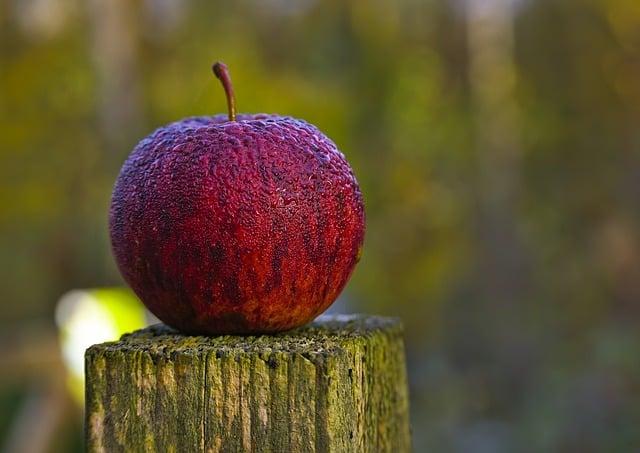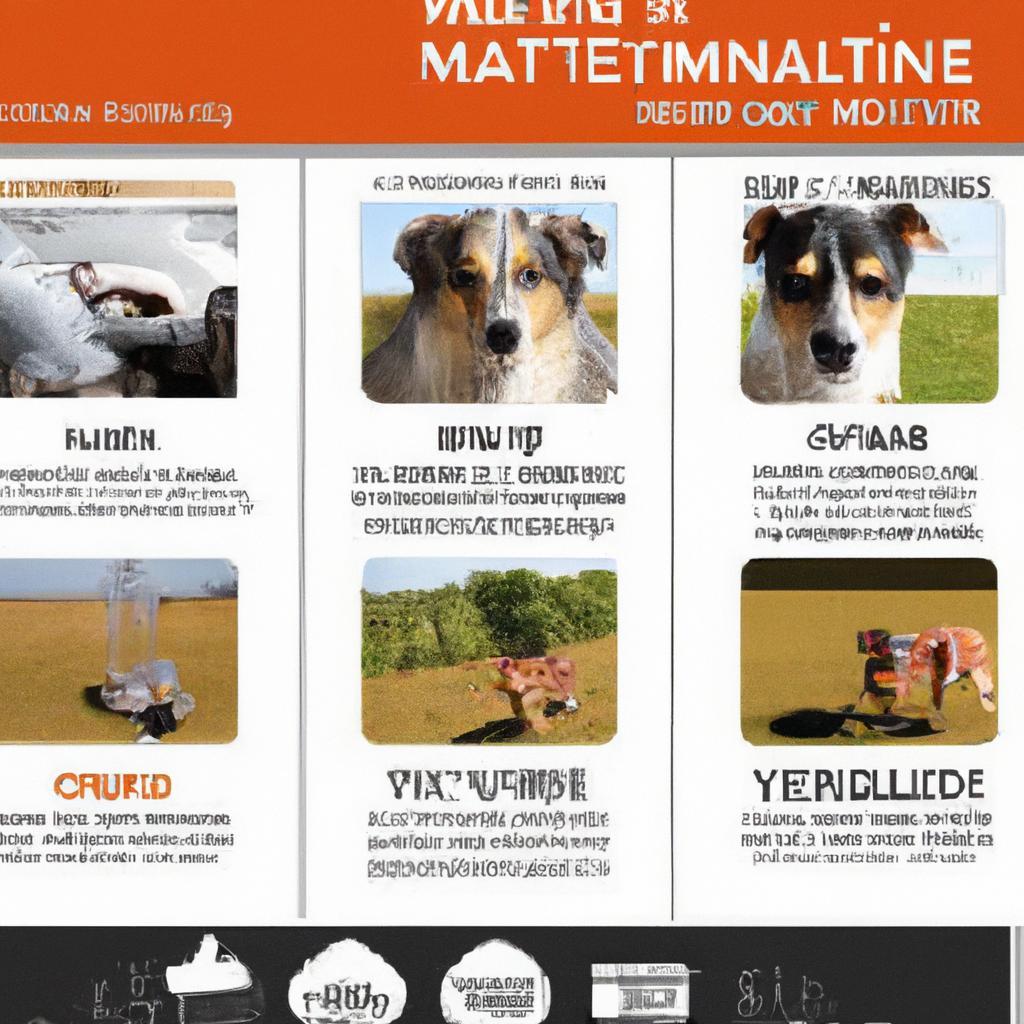Once, a dog named Max struggled with low energy and dull fur. His owner, Sarah, decided to switch to real food—fresh vegetables, lean meats, and whole grains. Within weeks, Max transformed. His coat gleamed, he bounded with energy, and his playful spirit returned. Sarah learned that real food, rich in nutrients and free from artificial additives, not only nourished Max but also strengthened their bond. Choosing real food for your dog isn’t just a diet change; it’s a commitment to their health and happiness. Give your furry friend the best!
Contents
- Understanding the Nutritional Needs of Dogs for Optimal Health
- Identifying Whole Food Ingredients That Promote Canine Wellness
- The Benefits of Fresh, Natural Foods Over Processed Dog Diets
- Practical Tips for Incorporating Real Food into Your Dogs Diet
- Q&A
Understanding the Nutritional Needs of Dogs for Optimal Health
When it comes to feeding our canine companions, understanding their nutritional needs is paramount for ensuring their overall health and vitality. Dogs, like humans, require a balanced diet that includes a variety of nutrients to thrive. A well-rounded diet should consist of high-quality proteins, healthy fats, carbohydrates, vitamins, and minerals. By focusing on real food sources, pet owners can provide their dogs with the essential nutrients they need for optimal health.
**Proteins** are the building blocks of a dog’s diet and are crucial for muscle development, immune function, and overall energy levels. High-quality protein sources include:
- Lean meats such as chicken, turkey, and beef
- Fish, which is rich in omega-3 fatty acids
- Eggs, a complete protein source
Incorporating these protein sources into your dog’s meals can help maintain their strength and vitality, ensuring they remain active and healthy.
**Healthy fats** are another essential component of a dog’s diet, providing energy and supporting skin and coat health. Fats also play a vital role in the absorption of fat-soluble vitamins. Some excellent sources of healthy fats include:
- Fish oil, which promotes a shiny coat and healthy skin
- Flaxseed oil, rich in omega-3 fatty acids
- Chicken fat, which is palatable and energy-dense
Including these fats in moderation can enhance your dog’s diet, contributing to their overall well-being.
**carbohydrates**, while not as critical as proteins and fats, can provide a valuable source of energy and fiber. Whole grains and vegetables can be excellent additions to your dog’s meals. Consider incorporating:
- Brown rice, which is easily digestible
- Sweet potatoes, packed with vitamins and minerals
- Green beans, a low-calorie treat rich in fiber
By offering a variety of real food options, pet owners can ensure their dogs receive a balanced diet that supports their health and longevity. Prioritizing these nutritional components will lead to happier, healthier dogs who can enjoy life to the fullest.
Identifying Whole Food Ingredients That Promote Canine Wellness
When it comes to enhancing your dog’s health, the right whole food ingredients can make all the difference. Incorporating a variety of nutrient-dense foods into your canine’s diet not only supports their overall wellness but also boosts their energy levels and immune system. **Lean proteins** such as chicken, turkey, and fish are essential for muscle development and repair, while also providing vital amino acids that contribute to a shiny coat and healthy skin.
In addition to proteins, **fruits and vegetables** play a crucial role in your dog’s diet. Ingredients like blueberries, carrots, and sweet potatoes are packed with antioxidants, vitamins, and minerals that help combat oxidative stress and promote healthy digestion. These natural sources of fiber can aid in maintaining a healthy weight and preventing gastrointestinal issues, making them an excellent addition to your furry friend’s meals.
Don’t overlook the importance of **healthy fats** in your dog’s diet. Sources such as fish oil, flaxseed, and coconut oil are rich in omega-3 and omega-6 fatty acids, which are vital for brain function, joint health, and a robust immune response. These fats not only support overall health but also contribute to a lustrous coat and healthy skin, ensuring your dog looks as good as they feel.
consider incorporating **whole grains** like brown rice, quinoa, and oats into your dog’s meals. These grains provide a steady source of energy and are rich in fiber, which aids in digestion and helps regulate blood sugar levels. By choosing whole food ingredients that are both nutritious and wholesome, you can create a balanced diet that promotes longevity and vitality in your beloved canine companion.
The Benefits of Fresh, Natural Foods Over Processed Dog Diets
Choosing fresh, natural foods for your dog can significantly enhance their overall health and well-being. Unlike processed diets, which often contain artificial additives, fillers, and preservatives, real food is packed with essential nutrients that support your pet’s immune system, promote healthy digestion, and maintain a shiny coat. By opting for whole ingredients, you ensure that your dog receives the vitamins and minerals they need for optimal growth and energy levels.
One of the most compelling reasons to switch to a natural diet is the absence of harmful chemicals commonly found in processed dog foods. Many commercial brands use low-quality ingredients that can lead to allergies, obesity, and other health issues. Fresh foods, such as lean meats, vegetables, and whole grains, provide a balanced diet that is less likely to cause adverse reactions. This not only improves your dog’s physical health but also contributes to their mental well-being, as a nutritious diet can lead to increased energy and vitality.
Moreover, fresh foods offer a variety of flavors and textures that can make mealtime more enjoyable for your furry friend. Dogs are naturally inclined to seek out diverse tastes, and incorporating real food into their diet can stimulate their appetite and encourage healthy eating habits. By providing a range of ingredients, such as fruits, vegetables, and proteins, you can create a more satisfying and enriching dining experience that keeps your dog engaged and excited about their meals.
Lastly, feeding your dog fresh, natural foods allows you to have complete control over their diet. You can tailor their meals to meet specific health needs, whether it’s weight management, allergies, or age-related concerns. This personalized approach not only fosters a stronger bond between you and your pet but also empowers you to make informed decisions about their nutrition. By prioritizing real food, you are investing in your dog’s long-term health and happiness, ensuring they lead a vibrant and active life.
Practical Tips for Incorporating Real Food into Your Dogs Diet
Incorporating real food into your dog’s diet can be a rewarding experience for both you and your furry friend. Start by gradually introducing fresh ingredients to their meals. This can be done by mixing small amounts of cooked vegetables or lean meats into their regular kibble. **Carrots, green beans, and sweet potatoes** are excellent choices that are not only nutritious but also appealing to dogs. Remember to chop these foods into manageable pieces to prevent choking and ensure easy digestion.
Another effective strategy is to prepare homemade meals that cater to your dog’s specific dietary needs. Consider using a variety of proteins such as **chicken, turkey, or fish**, paired with wholesome grains like **brown rice or quinoa**. This not only provides a balanced diet but also allows you to control the quality of the ingredients. Always consult with your veterinarian to determine the right proportions and to ensure that your dog is receiving all necessary nutrients.
Incorporating real food doesn’t have to be complicated. You can also use real food as training treats. Opt for **small pieces of cooked chicken or freeze-dried liver** to reward your dog during training sessions. This not only motivates them but also reinforces positive behavior with healthy options. Avoid processed treats that are high in sugars and fillers; instead, focus on whole foods that contribute to their overall health.
Lastly, consider the benefits of adding supplements to your dog’s diet. Ingredients like **fish oil** can promote a healthy coat and skin, while **probiotics** can aid in digestion. Always choose high-quality supplements and consult your vet for recommendations tailored to your dog’s specific health needs. By making these thoughtful adjustments, you can enhance your dog’s diet with real food, leading to a happier and healthier life.
Q&A
-
What types of real food are best for dogs?
High-quality proteins, healthy fats, and fresh vegetables are essential for a balanced diet. Consider incorporating:
- Lean meats: Chicken, turkey, and beef provide necessary protein.
- Fish: Salmon and sardines are rich in omega-3 fatty acids.
- Vegetables: Carrots, green beans, and sweet potatoes offer vitamins and fiber.
- Fruits: Blueberries and apples (without seeds) are great for antioxidants.
-
Are grains good for dogs?
While some dogs thrive on grain-free diets, many can benefit from whole grains. Options like brown rice and oats can provide energy and fiber. Always consult your veterinarian to determine the best approach for your dog’s specific needs.
-
How can I ensure my dog gets a balanced diet?
To provide a balanced diet, consider the following:
- Variety: Rotate different protein sources and vegetables.
- Supplements: Consult your vet about adding vitamins or minerals if needed.
- Portion control: Adjust serving sizes based on your dog’s age, weight, and activity level.
-
Can I feed my dog table scraps?
Feeding table scraps can be acceptable, but it’s crucial to avoid harmful foods like chocolate, onions, and grapes. Stick to healthy options like plain cooked meats and vegetables. Always ensure that any scraps are given in moderation and do not replace balanced meals.
choosing real food for your dog is not just a trend; it’s a commitment to their health and happiness. By prioritizing high-quality, natural ingredients, you ensure your furry friend thrives. Invest in their well-being today for a brighter tomorrow.

大家好,我是彼得潘,專業的手法身體治療師。我喜歡探索和研究各種主題,並透過與人工智慧的合作分享專業、實用、有趣的文章。我們定期進行人工審核,以確保內容的準確性。如果您發現文章中有任何不準確的地方,請隨時與我們聯繫,我們會及時糾正。您可以透過 [email protected] 與我們聯繫。



